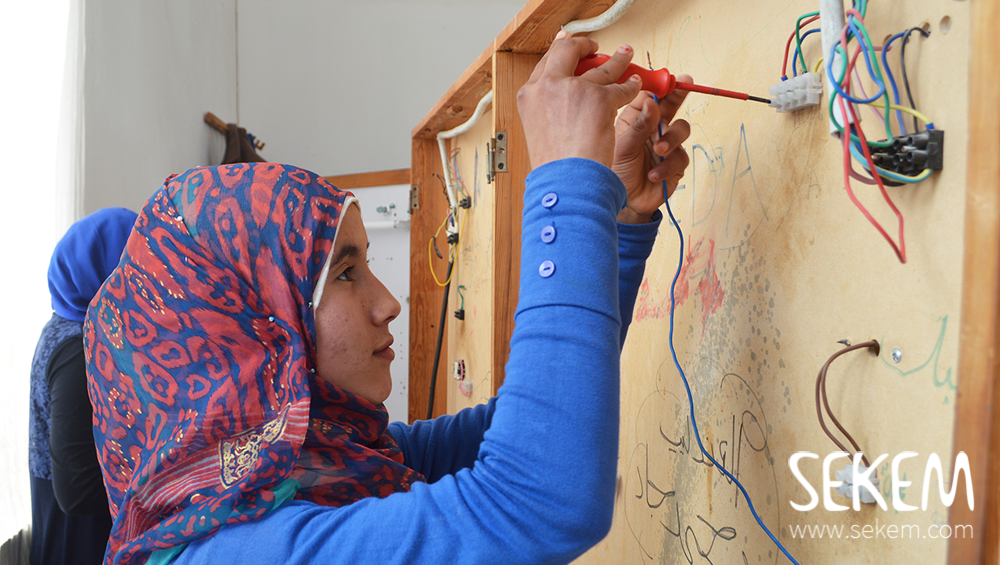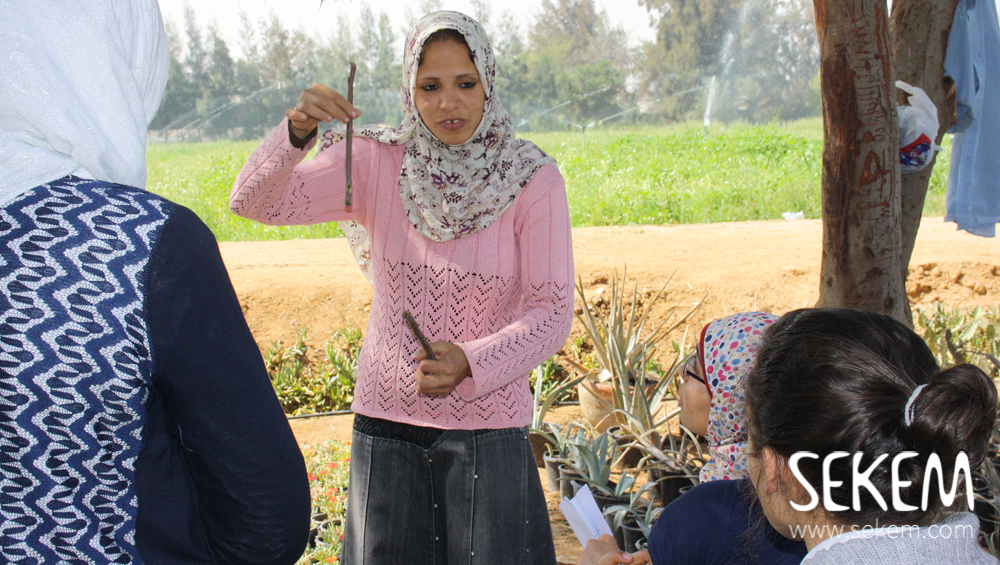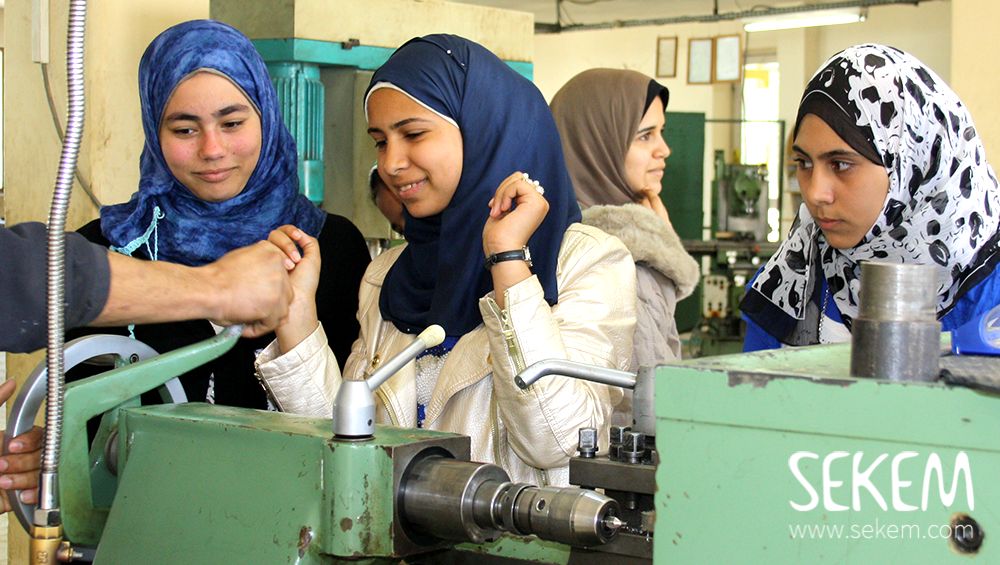On this year’s “Girl’s Day” SEKEMs Vocational Training Centre opened its doors to the female pupils of the SEKEM School to give them insights into the apprenticeships available to them.
On 8 March every year, the world celebrates the social, economic, and political achievements of women. As a sign of the strong belief in the important role of women in sustainable development, the SEKEM School’s teachers organized this year’s celebration of the day at the Vocational Training Centre to give female pupils early insights into the world of work.
The SEKEM School’s teachers have committed themselves to introduce the school’s girls’ to apprenticeships for professions that in the past have customarily been taken up by boys. This year’s “Girl’s Day” offered them an “open day” at the training centre providing them with brief glimpses into the occupational fields of plumbing, carpentry, mechanics, agriculture, and electricity.

To prepare the event, the teachers from both institutions met several times during January and February 2015 together with elementary and secondary school students. The teachers decided to invite female practitioners in professions which many in the Egyptian society still frequently consider to be unsuitable for women: a flight attendant and a plumber.
The “Girl’s Day” started with a celebration in the SEKEM School’s great hall attended by all the students, teachers, guests, and some co-workers and executives from SEKEMs companies. It began with a reading from the Holy Quran, recited by a male teacher and a female student together. Then, Fatma, a 21-year old flight attendant, spoke about her experiences in life and work as a flight attendant, followed by a recount by Umm Bassem, a woman today working as a plumber. She told the audience how she had finally arrived at the difficult decision to become a plumber late in life. Many of the women present were eager to learn of her experiences.
Strong Demand for Introductory Courses
At presentations, two teachers at SEKEMs Special Needs School, Ahmed and Mahmoud, spoke about how they take care for their pupils in the field of health, education, and personal daily needs. In Egypt, nursery positions are also commonly staffed with women. Several co-workers from the SEKEM Medical Centre also recounted their work experiences. A female quality supervisor from one of SEKEMs companies spoke about the impact gainful employment had on the development of her personality, broadening her outlook on life, and how this enabled her to make her own decisions.

The audience in the theatre was given the chance to ask questions to be answered by the guests and teachers. “How can women challenge the customs of their society which prevent them from practicing professions carried out only by men?” was among those particularly important to many participants. The school’s students were enthusiastic to accept women as partners in the process of working for greater sustainable development everywhere in society.
It was decided that there would be more events like this one in the future to answer the many appeals for more opportunities to learn about routes of occupational advancement for women.
Tamer Badr and Christine Arlt

